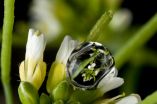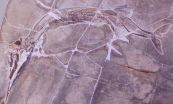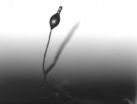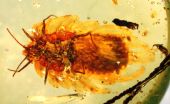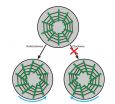(Press-News.org) WASHINGTON - Searching the Internet for information may make people feel smarter than they actually are, according to new research published by the American Psychological Association.
"The Internet is such a powerful environment, where you can enter any question, and you basically have access to the world's knowledge at your fingertips," said lead researcher Matthew Fisher, a fourth-year doctoral candidate in psychology at Yale University. "It becomes easier to confuse your own knowledge with this external source. When people are truly on their own, they may be wildly inaccurate about how much they know and how dependent they are on the Internet."
In a series of experiments, participants who searched for information on the Internet believed they were more knowledgeable than a control group about topics unrelated to the online searches. In a result that surprised the researchers, participants had an inflated sense of their own knowledge after searching the Internet even when they couldn't find the information they were looking for. After conducting Internet searches, participants also believed their brains were more active than the control group did. The research was published online in the Journal of Experimental Psychology: General.
For nine experiments, a range of 152 to 302 participants were recruited online, with different participants taking part in each experiment. In one experiment, the Internet group used online searches to research four questions (e.g., "How does a zipper work?") and provided a website link with the best answer. The control group was given the exact text from the most common website used by the Internet group to answer the questions. Both groups then rated their ability to answer other questions (e.g., "Why are cloudy nights warmer?") on topics unrelated to the Internet searches, although they didn't have to answer those questions. The Internet group members consistently rated themselves as more knowledgeable than the control group about those unrelated topics.
The Internet group reported an inflated sense of personal knowledge after Internet searches even when its members could not find complete answers to very difficult questions (e.g., "Why is ancient Kushite history more peaceful than Greek history?") or when they found no answers at all because of Google filters that were used. The cognitive effects of "being in search mode" on the Internet may be so powerful that people still feel smarter even when their online searches reveal nothing, said study co-author Frank Keil, PhD, a psychology professor at Yale.
In another experiment, participants who did online searches thought their brains would be more active than the control group, and they chose magnetic resonance images of a brain with more active areas highlighted as representative of their own brains. This result suggests that the participants searching the Internet believed they had more knowledge in their heads, rather than simply thinking they knew more because they had access to the Internet, Fisher said.
The use of Internet searches, not just access to the Internet, appeared to inflate participants' sense of personal knowledge. When the Internet group members were given a particular website link to answer questions, they didn't report higher levels of personal knowledge on the unrelated topics than the control group.
People must be actively engaged in research when they read a book or talk to an expert rather than searching the Internet, Fisher said. "If you don't know the answer to a question, it's very apparent to you that you don't know, and it takes time and effort to find the answer," he said. "With the Internet, the lines become blurry between what you know and what you think you know."
The growing use of smartphones may exacerbate this problem because an Internet search is always within reach, Keil said, and the effects may be more pronounced when children who are immersed in the Internet from an early age grow up to be adults.
An inflated sense of personal knowledge also could be dangerous in the political realm or other areas involving high-stakes decisions, Fisher said.
"In cases where decisions have big consequences, it could be important for people to distinguish their own knowledge and not assume they know something when they actually don't," he said. "The Internet is an enormous benefit in countless ways, but there may be some tradeoffs that aren't immediately obvious and this may be one of them. Accurate personal knowledge is difficult to achieve, and the Internet may be making that task even harder."
INFORMATION:
Article: "Searching for Explanations: How the Internet Inflates Estimates of Internal Knowledge;" Matthew Fisher, MA, Mariel K. Goddu, BA, and Frank C. Keil, PhD; Yale University; Journal of Experimental Psychology: General, online, Mar. 31, 2015.
Full text of the article is available from the APA Public Affairs Office and at
http://www.apa.org/pubs/journals/releases/xge-0000070.pdf.
Contact: Matthew Fisher at matthew.fisher@yale.edu or (260) 519-1736.
The American Psychological Association, in Washington, D.C., is the largest scientific and professional organization representing psychology in the United States. APA's membership includes more than 122,500 researchers, educators, clinicians, consultants and students. Through its divisions in 54 subfields of psychology and affiliations with 60 state, territorial and Canadian provincial associations, APA works to advance the creation, communication and application of psychological knowledge to benefit society and improve people's lives.
http://www.apa.org
If you do not want to receive APA news releases, please let us know at public.affairs@apa.org or 202-336-5700.
PHILADELPHIA - HIV (human immunodeficiency virus)-positive kidney transplant patients experienced superior outcomes when compared to kidney transplant patients with Hepatitis C and those infected with both HIV and Hepatitis C, according to a study led by researchers at the Perelman School of Medicine at the University of Pennsylvania and published online in Kidney International.
The research team examined outcomes of 124,035 adult kidney recipients transplanted between 1996 and 2013, and found the three-year survival rate of HIV patients (89 percent) was actually very ...
Inhalable particles include all particulate matter with a diameter smaller than 10 micrometers (PM10). In this group a distinction is made between even finer particles smaller than 2.5 micrometers (PM2.5) in diameter, which can deeply enter the lung, and ultrafine particles with diameters less than 0.1 micrometers (100 nanometers), which can also enter the blood stream.
The research team at Helmholtz Zentrum München led by Prof. Dr. Annette Peters, head of the research program Epidemiology at the German Center for Diabetes Research (DZD), and Dr. Alexandra Schneider ...
Scientists at the John Innes Centre have discovered why the first buds of spring come increasingly earlier as the climate changes.
Dr Steven Penfield at the JIC found that plants have an ideal temperature for seed set and flower at a particular time of year to make sure their seed develops just as the weather has warmed to this 'sweet spot' temperature.
Dr Penfield, working with Dr Vicki Springthorpe at the University of York, found the sweet spot for the model plant Arabidposis thaliana is between 14-15?C. Seeds that develop in temperatures lower than 14?C will almost ...
Saurichthys is a predatory fish characterized by a long thin body and a sharply pointed snout with numerous teeth. This distinctive ray-finned fish lived in marine and freshwater environments all over the world 252-201 million years ago during the Triassic period. Two new species of this extinct fish have been discovered by paleontologists at the University of Zurich, working in collaboration with researchers in Germany and China. The first species, «Saurichthys breviabdominalis», is named for its relatively short body and the second, «Saurichthys rieppeli», ...
Darwin's evolutionary theory predicts survival of the fittest. So why do different survival tactics co-exist, if evolution should always favour the winning strategy?
To answer that question scientists at the Universities of Bath and Manchester have been studying a single-celled amoeba, also known as slime mould, which displays certain behaviours that have been labelled as "cheating" or "cooperating".
In a study, published in the prestigious journal Current Biology, the team found that cheaters don't necessarily win in terms of overall survival, suggesting that biologists ...
Scientists at the University of Bonn, together with colleagues from China, UK and Poland, have described the oldest evidence of brood care in insects: it is in a female scale insect with her young that is encased in amber as a fossil. The approximately100-million-year-old "snapshot" from the Earth's history shows the six millimetre long tiny insect with a wax cocoon, which protected the eggs from predators and drying out plus associated young nymphs. The researchers are now presenting their results in the respected journal eLIFE.
The small female insect with the waxy ...
Face recognition security on smartphones can be significantly improved if users store an 'average' photo of themselves, according to new research by scientists at the University of York.
A research team led by Dr David Robertson, of the Department of Psychology's FaceVar laboratory at York, found that combining different pictures of the user, rather than a single 'target' image, leads to much better recognition across all kinds of daily settings. The research is published in the journal PLOS ONE.
The researchers examined the performance of the 'face unlock' system ...
Researchers at the Mechanobiology Institute (MBI) at the National University of Singapore have discovered that the inherent 'handedness' of molecular structures directs the behaviour of individual cells and confers them the ability to sense the difference between left and right. This is a significant step forward in the understanding of cellular biology. This discovery was published in Nature Cell Biology on 23 March 2015.
Cellular decision making
Our bodies are made up of hundreds of different types of cells, each of which performs a unique and highly specialized ...
Researchers from the UK and Malaysia have detected a human fingerprint deep in the Borneo rainforest in Southeast Asia. Cold winds blowing from the north carry industrial pollutants from East Asia to the equator, with implications for air quality in the region. Once there, the pollutants can travel higher into the atmosphere and impact the ozone layer. The research is published today in Atmospheric Chemistry and Physics, an open access journal of the European Geosciences Union (EGU).
Rainforests are often associated with pure, unpolluted air, but in Borneo air quality ...
WASHINGTON-- The Society for Public Health Education (SOPHE) proudly announces the publication of a Health Education & Behavior (HE&B) supplement devoted to the latest research and practice on policy and environmental approaches to foster healthy communities. The April 2015 supplement, "The Evidence for Policy and Environmental Approaches to Promoting Health," comprises a dozen peer-reviewed articles and two perspectives examining the state-of-the-evidence on what's working and what's needed at the community, institutional and societal levels to promote good health across ...
